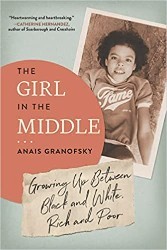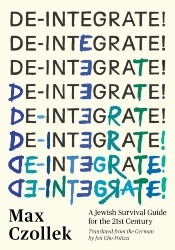Glance, the second collection of poetry by Chanda Feldman, explores the experiences of a Black and white and Jewish American family that moves abroad to find respite from contemporary racial violence. Spanning diverse landscapes in Israel and the Middle East, Europe, and the United States, the poems grapple with the inability to escape brutalities and prejudices, asking where―and if―it is possible to find a sense of home and community. Feelings of belonging and estrangement, safety and threat, as well as questions of identity, both of the self and the family, drive the speaker to look inward and outward in order to navigate the world.
Though never breaking free from their attendant anxieties, Feldman’s poems revel in the beauty of environment and place as they traverse global spaces, from the sea to the city, from the playground to the museum, from orchards to the synagogue, seeking a home in the world.

Glance: Poems
Discussion Questions
Glance is a paradigm-shifting achievement in Jewish poetics. Much of the book recounts the speaker’s decision to raise her Black Jewish children in Israel to shield them from American racism. The collection complicates this move with nuance that challenges readers to “learn to live with such songs at such decibels.” “Beach Diptych” integrates an account by Palestinian poet Mahmood Darwish and “Palinode to a New Year of Trees,” which speaks to Palestinian erasure, is “attuned and open to quiver and agitation in the understory.” In “Independence Day,” the speaker celebrates Israeli Independence Day with other Black Jews amidst a backdrop “radiating Pan-African red black green. The Lion of Judah. The fist.” In “[any given day]” the speaker notes that she moved from America to Israel due to “an unspoken hope to extend childhood” for her kids, but finds the same racism that she tried to escape when an Israeli police officer murders Solomon Teka, an eighteen-year-old Ethiopian Israeli Jew. Glance is essential in its subject material, varied and breathtaking in its poetics, and singular in its contribution to Jewish poetry.

Help support the Jewish Book Council.



